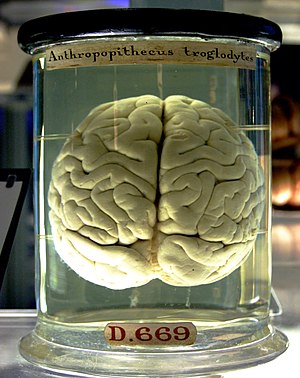 Image via Wikipedia
Image via WikipediaAir Pollution
The causes of air pollution can result from natural forces or from modern living. There are four main gases: nitrogen, oxygen, argon and carbon dioxide. The urban air has an excess of carbon dioxide plus sulfur dioxide, nitrogen oxide, ozone, and a group of compound called hydrocarbons. Present in these gases are lead, mercury and particulate. Particulates are small particles or liquid droplets that are suspended in air, including fumes, smoke, and dust. Burning of fossils fuels by cars and factories are the causes of air pollution. Air pollution produce air pollutants, which forms a thick, visible haze called smog. Under normal weather conditions, this haze rises toward the cooler air in the upper atmosphere where it diffuses. This condition may affect people such as eye burn and tears, irritates the throat, and can cause coughing or breathing difficulty. It will also promote the development of a wide range of respiratory and other health problems, such like asthma, emphysema, and bronchitis. To the people who have existing heart and lung ailments, pollution can be life threatening. Other ill effect of air pollution is the production of acid that may destroy the normal acid balance of the water and soil, and kills water plants and animals, as well as fishes and birds.
Water Pollution
Improper dumping of human wastes and phosphate detergents has created water pollution problem. Phosphates and high levels of chemicals in water produce toxic chemicals, which promotes rapid growth of bacteria and algae. This will deplete the normal oxygen causing eutrophication, or aging resulting to chocking of water plans, fishes, and other living organisms. Water pollution leads to contamination of food supply, such as the use of pesticides containing PCBs and Dioxin. These chemical elements cause cancer to humans.
Radiation
Low level of radiation is not harmful to human health, such as non-ionizing radiation in microwaves and x-ray. Other radioactive substance in the earth like uranium and radium causes radiation. Radiation from the sun can be harmful if the heat is too intense. However, all these can be damaging to human health if exposed to high levels of radiation, which will injure the cells and cause genetic damage. Pregnant women are not allowed to undergo any x-ray for it is harmful to the mother and the child’s health. It may cause deformities, fever, miscarriage and death.
Solid Waste
Solid wastes are the most hazardous and problematic environmental condition. Most dumping sites are open spaces used as breeding grounds for rats, flies, and other disease carries. Improper burning of solid waste can increase air pollution. Common diseases causes by improper solid waste management are diarrhea, malaria, pneumonia, skin disease, and other viral infections.



